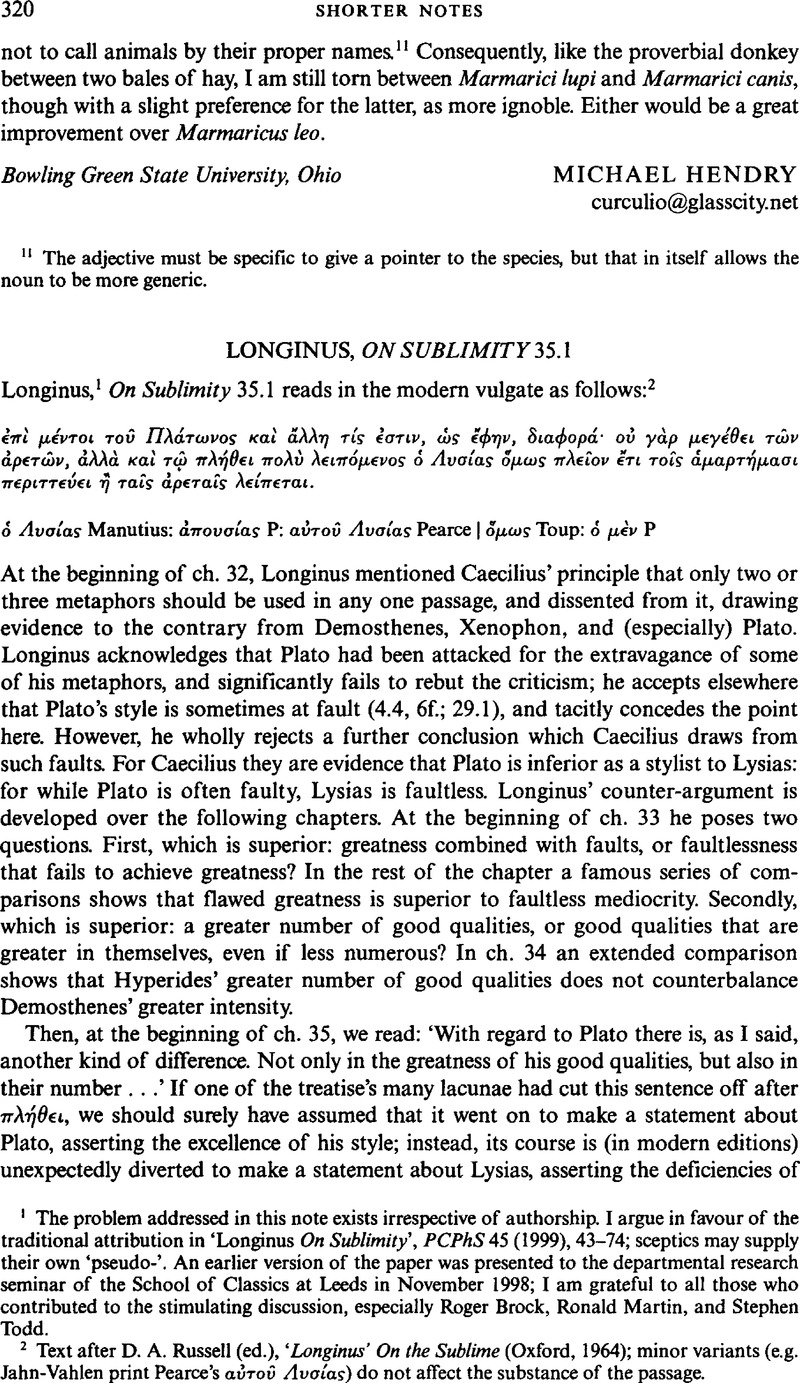Article contents
Longinus, On Sublimity 35.1
Published online by Cambridge University Press: 11 February 2009
Abstract

- Type
- Shorter Notes
- Information
- Copyright
- Copyright © The Classical Association 2000
References
1 The problem addressed in this note exists irrespective of authorship. I argue in favour of the traditional attribution in ‘Longinus On Sublimity', PCPhS 45 (1999), 43–74; sceptics may supply their own ‘pseudo-’. An earlier version of the paper was presented to the departmental research seminar of the School of Classics at Leeds in November 1998; I am grateful to all those who contributed to the stimulating discussion, especially Roger Brock, Ronald Martin, and Stephen Todd.
2 Text after Russell, D. A. (ed.), ‘Longinus’ On the Sublime (Oxford, 1964)Google Scholar; minor variants (e.g. Jahn-Vahlen print Pearce's αὐτo Aυαας) do not affect the substance of the passage.
3 Russell, D. A., ‘Longinus revisited’, Mnemosyne 34 (1981), 72–86, at 84.CrossRefGoogle Scholar Russell goes on to talk of the ‘inadequacy’ of Lysias and Hyperides, by contrast with the ‘truly great’. But are authors who are not ‘truly great’ to be condemned as ‘inadequate’? Contrast Longinus 36.1: κα τ με ᾰπταιστoε oὐ ψγα δ κα θαυμζεται
4 Cf. Russell (n. 3), 74.
5 Photius (cod. 262, 489M-9, 13–15) reports the view of ‘some’ that Lysias was weak in amplification, and Caecilius’ claim (= fr. 110 Ofenloch) that he was less successful in than invention; cf. 262, 488b35–6 for an error that ‘even’ Lysias makes in the presentation of character. The one specifically stylistic criticism of Lysias that I have found is a comment by Theophrastus (fr. 692 Fortenbaugh = D.H. Lys. 14) on a single passage in a speech not regarded as authentic by later critics.
6 Contrast the terms in which Cicero rebuts excessive admiration of Lysias (Orator 29): ‘venustissimus … politissimus … quod nihil habeat insolens aut ineptum.’
7 The only modern scholar to have recognized the difficulties of the vulgate is Grube, G. M. A., ‘Notes on the περ ὺψoυ’; AJPh 78 (1957), 355–74:Google Scholar see 371–4 (not all his objections to the vulgate are valid; he overlooks, for example, parallels for elliptical oὐ … λλᾰ κα in the sense oὐμóεoε … λλᾰ κα) But his attempt to interpret the paradosis (advanced with due caution) is unsuccessful: see Russell's comments ad loc.
- 1
- Cited by




